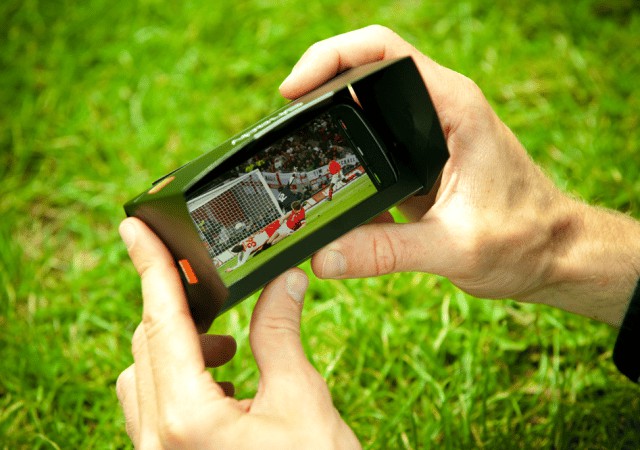
The rise of the mobile web has put strains on data networks; TV and video threatens to exacerbate the problem. So now carriers are trying the latest in a long line of mobile TV standards, in a bid to claw back their capacity.
Three of the UK’s five main networks – O2, Orange and Vodafone (NYSE: VOD) – say they will trial Integrated Mobile Broadcast, a 3GPP standard unveiled by the GSM Association in September that uses a little-used part of 3G spectrum called Time (NYSE: TWX) Division Duplex (TDD) to make more efficient use of spectrum. It’s not so much trying to put the genie back in the bottle, as getting a bigger bottle.
No broadcast partners are on board, and it’s not yet clear whether they would need to deliver differently-formatted material for IMB, but IMB is supposed to be seamless with existing standards and Orange says the networks are “exploring whether a new technology could help operators meet the growing appetite for mobile entertainment, maximise 3G network investments and create new and exciting services for customers”. The operators say it could save them bandwidth costs.
The trial will run for three months from October in London and Slough and will involve the three networks sharing infrastructure. But over 150 operators in 60 countries are signed up to try IMB.
Wikipedia notes a total 11 global mobile TV standards.
Notably, IMB uses mobile data networks rather than separate, radio spectrum, which has not proved relatively successul. The European Commission ratified DVB-H, which is basically digital terrestrial, as the continent’s mobile TV standard in 2007, but it has gained little adoption. BT (NYSE: BT) canceled its DAB-based Movio service, which was only used by one handset – Virgin Mobile (NYSE: VM) UK’s Lobster – in the same year. The radio-based MediaFLO is still going in the U.S.
But broadcasters are not hanging around. In the absence of radio standards, the internet itself is showing it can push mobile TV just fine. Mobile accounts for five percent of viewing on the UK’s leading BBC iPlayer VOD service (six million requests a month), while ITV (LSE: ITV) has launched World Cup mobile simulcasts and now the BBC is enabling live simulcast to iPad and, later, mobiles. Many mobile carriers also offer their own, data-delivered TV subscription packs.
But much of this is a problem for them, especially for O2, whose network has been dented by a period of iPhone exclusivity and which is stepping back from unlimited data tariffs…
Deloitte says streaming one World Cup game over 3G eats 400Mb and: